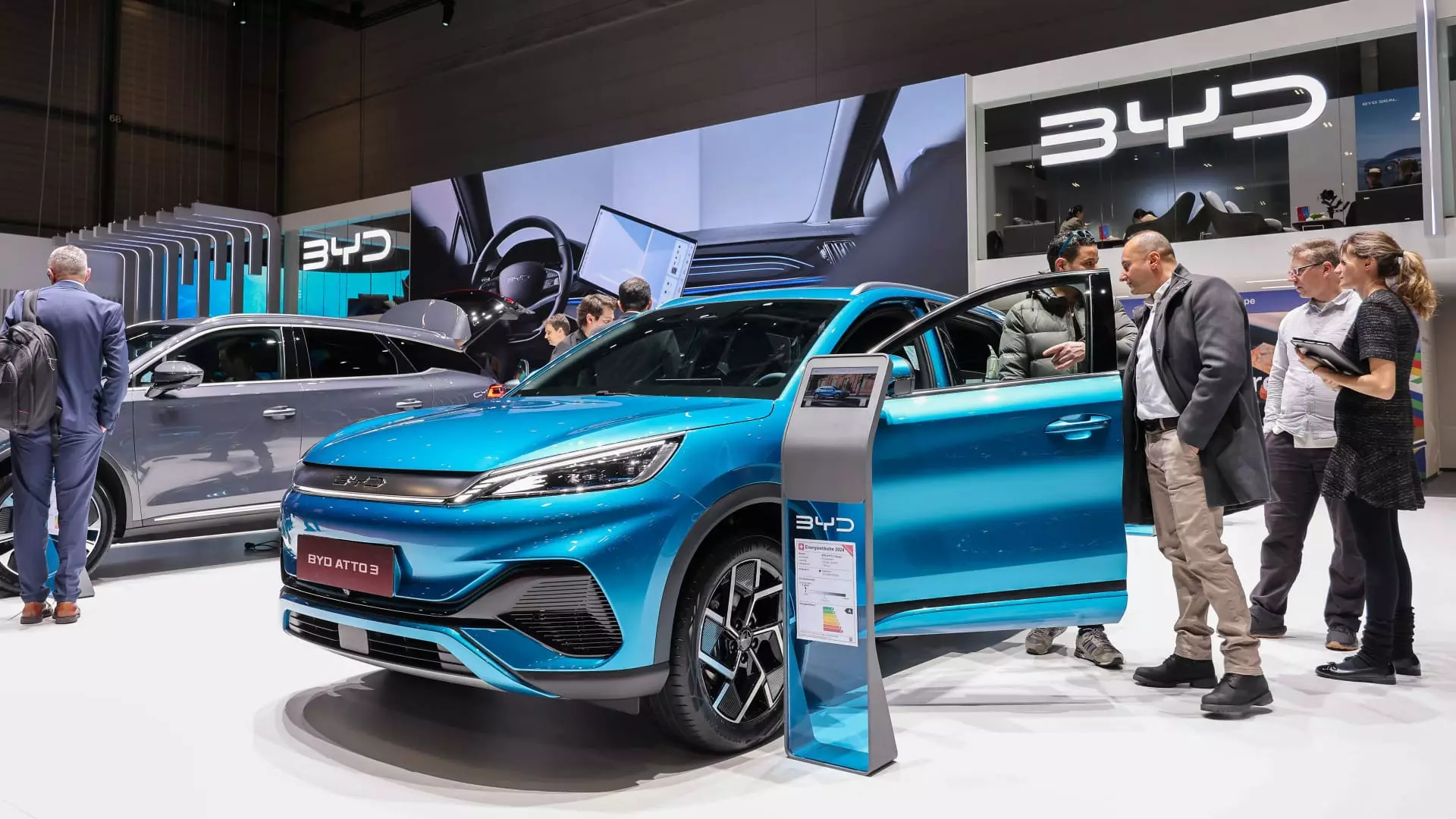The market for electric vehicles (EVs) in Europe has seen a significant shift in recent years, with China-made electric vehicles making up more than a quarter of EV sales in the region this year. This marks an increase of over 5% from the previous year, according to a new policy analysis. The European Federation for Transport and Environment (T&E) reported that about 19.5% of battery-powered EVs sold in the EU last year were from China, with a significant portion of sales in countries like France and Spain coming from Chinese manufacturers.
The share of made-in-China vehicles in Europe is expected to continue rising in the coming years. The T&E research suggests that Chinese brands like BYD are ramping up their global expansion efforts, which will lead to a predicted share of just over 25% by 2024. While Western brands like Tesla currently dominate the EV market in the EU, Chinese brands are projected to account for 11% of the market in 2024, with a potential increase to 20% by 2027.
The growing presence of China-made EVs in Europe has raised concerns about unfair competition and subsidy practices. The European Commission is currently investigating subsidies given to electric vehicle makers in China to determine if they are undercutting local companies. This investigation could potentially involve non-Chinese brands like Tesla and BMW, which also manufacture and ship EVs from China.
The rise of Chinese EVs in Europe highlights both challenges and opportunities for the industry. According to experts like Tu Le, founder of Sino Auto Insights, China’s early incentives for EV production led to a surge in startups and increased battery cell capacity, making affordable EVs a reality. However, the EU and the US have lagged behind in developing quality and affordable EVs, as legacy automakers only recently shifted their focus to electric vehicles.
As Europe grapples with the increasing presence of China-made EVs, there are discussions about potentially raising tariffs on imported electric cars to level the playing field. T&E suggests that increasing EV tariffs to at least 25% would make medium-sized EVs from China more expensive than their EU counterparts. However, this would also require Europe to boost its battery cell production capabilities to become more self-sufficient in the EV industry.
In response to policy risks associated with shipping China-made EVs to Europe, manufacturers like Tesla and BYD have started ramping up their manufacturing efforts in the continent. This shift towards local production could help address concerns about subsidies and competition while also creating new opportunities for collaboration between Chinese and European companies in the EV sector.
The rise of China-made electric vehicles in Europe represents a significant trend in the EV market. While it poses challenges in terms of competition and policy implications, it also opens up new possibilities for collaboration and innovation in the industry. As the market continues to evolve, it will be crucial for policymakers and industry stakeholders to work together to navigate these changes and ensure a sustainable future for electric mobility.

